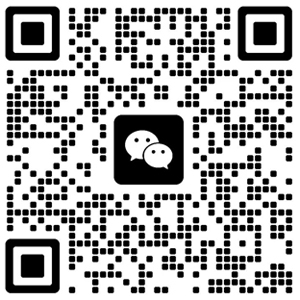大学专升本英语必背句型_大学专升本英语必背句型及答案
大学专升本英语必背句型_大学专升本英语必背句型及答案
大家好,今天我将为大家讲解大学专升本英语必背句型的问题。为了让大家更好地理解这个问题,我将相关资料进行了整理,现在就让我们一起来看看吧。
文章目录列表:
1.大学英语专升本知识点有哪些?2.13个英语句型让你记住大学全部语法
3.大学英语作文万能句型汇总
4.成考专升本英语词汇与语法部分十一
5.2021年重庆成人高考专升本英语写作必背句型(一)?
6.专升本的英语语法怎么复习?如何学好英语语法?

大学英语专升本知识点有哪些?
大学英语专升本知识点有哪些?专升本英语考试会考到很多知识点,今天湖北专升本网为准备参加普通专升本的考生整理了下面几个常考语法知识点,相信会对你有帮助。
一、be动词
1、be(是)动词的用法:am接I;is接第三人称单数,即除you、I外;are接表示多个人或事物,即复数。(我是am,你是are,is连接它、她、他,单数is,复数are)。
2、not是表示否定的词:不是的表达,am not,is not(isn’t),are not(aren’t)。
3、“一个”和“几个”的问题:“一个”是a+名词;“多个”是名词后面加s。
4、以元音开头(如O、E等),前面的冠词用an。
二、及物动词
1、及物动词与不及物动词的区别:及物动词后面接宾语;而不及物动词后面不接宾语。如I like ice cream ,It hurts。
2、主语是he、she、it和单数名词时,动词要发生第三人称的变化,即加s。
3、否定的用法:在动词之前加do not或does not。I、You和复数名词做主语时,否定就用do not;凡是单数名称和he、she、it做主语,否定就用does not。
三、名词所有格
1、my(我的)、your(你的)、his(他的)、her(她的)、their(他们的)、our(我们的)、its(它的)+名词,如my love,your love 。
2、名词所有格形式为:名词+’s,表示“……的”,如Sophie’s world,children’s Day,Japan’s tomorrow。
3、用名词+of+名词,一般用在无生命的名词上,表示“……的’’,如The sound?of music(音乐之声)。
四、“there be”句式
1、“have”和“there be”翻译成汉语都可以用一个“有”字来表示,但have是指主观的“所有、拥有”,而there be则是指客观的“存在,某处有某物”。
2、There be的单复数变化与be的变化规则相同,取决于后面所接的主语。主语为单数,就变成there is,主语是复数,就变成there are。
3、“have”在第三人称单数时变成“has”。
4、“there be”的否定形式在be后加not,对于have通常直接在它的宾语前加“no”,表示“没有”的意思。
五、一般疑问句概念
1、 一般疑问句概念:是可以用“yes”或“no”来回答的疑问句。
2、 一般疑问句的结构模式:助动词+陈述句形式+?
如:Do you have a car? No, I don’t 或Yes, I do
Are you a chicken guy? No , I am not 或Yes , I am
Is there any cake in the icebox? No , there isn’t 或 Yes , there is
3、注意:Your boss has a car. Does your boss have a car? 这句中的Has在助动词does提前时,需要改变成原形。
4、在一般疑问句中,表示“一些”的概念时,用Many而不用some。
1.as...as...引导的比较级:
(1)“as +形容词或副词原级+as+被比较对象”结构。例句: He studies as hard as you. 他像你一样学习努力。
(2)在否定句或疑问句中可用 not so…as…. 例句:He can notrun so/as fast as you. 他没你跑得快。
2.only引导的倒装句型:only +状语 (或状语从句)位于句首时,句子部分倒装。
例句: Only by diligence and honesty can one succeed inlife. 只有勤奋、正直,一个人在生活中才能成功。
注意:但 only修饰主语时,不倒装。
例句: Onlythat girl knew how to work out the problem. 只有那位女生知道怎样解那道题。
3.wish引导的虚拟语气:wish 后面的从句,当表示与事实相反的情况,或表示将来不太可能实现的愿望时,其宾语从句的动词形式为:
⑴表示对现在情况的虚拟:从句动词用过去式或过去进行式表示,be 的过去式用were.
I wish I knew the answer to the question. 我希望知道这个问题的答案。(可惜不知道。)
⑵表示对过去情况的虚拟:从句动词用had +过去分词。
I wish (that) I hadn’t wastedso much time. 我后悔不该浪费这么多时间。( 实际上已经浪费掉了。)
⑶表示对将来的主观愿望:谓语动词形式为“would/ should/ could/ might +动词原形”。在这种情况下,主句的主语与从句的主语不能相同,因为主句的主语所期望的从句动作能否实现,取决于从句主语的态度或意愿(非动作名词除外) 。
I wish it would stop raining. 但愿雨能停止。
注意:若wish 后的宾语从句中用 would,可以表示请求,通常意味着说话人的不快或不满。
例句:I wish you would be quiet. 我希望你安静一些。
4.it形式宾语:和it 作形式主语一样, 我们常用it 来作形式宾语, 把真正的宾语从句放在句末, 这种情况尤其出现在带复合宾语的句子中。
例句:He has made it clear that he will not give in. 他表明他不会屈服。
5.The+比较级,the+比较级表示“越......越......”。
例句:The more scared we are, the stronger the difficultywill become.我们越害怕困难,困难就会变得越强大。
6. 宾语从句:一般疑问句做宾语,引入if或whether
例句: I want to know if he will join us in thediscussion?
7. 原因状语从句:since引导的
例句: Don’t eat too much sugarsince it is bad for your health.
8. 否定词前置倒装:scarcely...when...
例句: Scarcely had he arrived at home when it began torain.
9. 宾语从句:放在介词后面,作介词的宾语。
例句:I know nothing about him except that he used towork in Shanghai.
自考/成考有疑问、不知道如何总结自考/成考考点内容、不清楚自考/成考报名当地政策,点击底部咨询官网,免费领取复习资料:/xl/
13个英语句型让你记住大学全部语法
13个英语句型让你记住大学全部语法
导语:学习句型可以记住语法,下面是我收集整理的13个可以记住语法的句型,希望对你有帮助!
1as 句型
(1) as引导方式状语从句句型:?按照?;正如
例:As(it is)in your country, we grow wheat in the north and rice in the south.
正如(像) 你们国家一样,我们北方种植小麦,南方种植水稻。
(2) as+形容词/副词原级+(a /an)+名词+as ;
否定式:not as/so --- as
例:He is as good a player as his sister.
他和他姐姐一样是位优秀的运动员。
(3) such + n. + as to do 如此?以致于?
例:She is such a fool as to believe what he said.
她是一个如此的一个笨蛋以致相信了他所说的话。
(4) so + adj./adv. + as to do sth 如此?以致于?
例:He was so strong as to carry the heavy box.
他是如此的强壮以致于能提起那重箱子。
(5) such...as... 象?之类的? (接名词或定语从句)
例:He wished to be such a man as Lei Feng was.
他希望成为一个像雷锋这样的人。
(6) the same +名词+as 和?一样的? (接名词或定语从句)
例:He is not the same man as he used to be.
他不是从前的那样子了。
(7) as 引导非限制性定语从句
例:As is known to us, knowledge is power.
众所周知,知识就是力量。
(8)引导时间状语从句,与while意义相近
例:We get wiser as we get older.
随着我们长大,我们也变得越来越聪明。
(9) 引导原因状语从句,与 because的用法相近
例:As it was getting very late, we soon turned back.
因为越来越迟了,所以我们不久就回来了。
(10) 引导让步状语从句
例:Child as he is, he knows much about science.
尽管他是一个小孩,但他对科学了解得很多。
2prefer 句型
(1) prefer to do sth
例:I prefer to stay at home.
我宁愿呆在家里。
(2) prefer doing sth
例:I prefer playing in defence.
我喜欢打防守。
(3) prefer sb to do sth
例:Would you prefer me to stay?
你愿意我留下来吗?
(4) prefer to do sth rather than do sth ?
宁愿?...而不愿...
例句:I prefer to stay at home rather than go out.
我宁愿呆在家里而不愿出去.
(5) prefer doing sth to doing sth
例:I prefer watching football to playing it.
我喜欢看篮球,不喜欢打篮球。
(6) prefer sth to sth
例:I prefer tea to coffee.
我要茶不要咖啡。
3when 句型
(1) be doing sth...when...
例:He was still smiling when the door opened and his wife came in.
他正笑着的时候门突然开了,他妻子走了进来。
(2) be about to do sth ... when ...
例:We were about to start when it began to rain.
我们刚要出发,天就开始下雨了。
(3) had just done ... when ...
例:I had just gone to bed after a very hard day when the phone rang.
在劳累了一天之后我刚刚就寝,电话铃就响了。
4seem 句型
(1) It +seems + that从句
例:It seemed that everyone was satisfied.
看来好像每个人都很满意。
(2) It seems to sb that ...
例:It seems to me that she is right.
我看她是对的,
(3) There seems to be ...
例:There seems to be a heavy rain.
看上去要有一场大雨。
(4) It seems as if ...
例:It seemed that she couldn't come to class.
看样子她不能来上课了。
5表示?相差?;增加了..;增加到..?句型
(1) She is taller than I by three inches.
她比我高三英寸
(2) There is one year between us.
我们之间相差一岁。
(3) She is three years old than I.
她比我大三岁。
(4) They have increased the price by 50%.
他们把价格上涨了50%
(5) His salary has rised to 10,000 yuan per month.
他的工资已经涨到了每月10,000元。
6what 引导的'名词性从句
(1) what 引导主语从句
例:What surprised me is that everybody seemed to be very indifferent to her.
让我吃惊的是每个人似乎对她都很冷淡。
[ indifferent adj.不关心的;冷漠的]
(2) what 引导宾语从句
例:We can learn what we do not know.
我们能学会我们不懂的东西。
(3) what 引导表语从句
例:That is what I want.
那正是我所要的。
(4) what 引导同位语从句
例:I have no idea what they are talking about.
我不知道他们正在谈论什么。
7too 句型
(1) too ... to do ...
例:Politics is too important to be left to the politicians.(=Politics is so important that it can't be left to the politicians.)
政治太重要了,不能由政治家来决定。
(2) only too ... to do ...
例:I shall be only too pleased to get home.
我要回到家里就非常高兴。
(3) too + adj + for sth
例:These shoes are much too small for me.
我穿这双鞋太小了。
(4) too + adj + a + n.
例:This is too difficult a text for me. 这篇课文对我来说太难了。
(5) can't ? too +形容词 无论?也不为过
例:We cannot emphasize the importance of protecting our eyes too much.
我们再怎么强调保护眼睛的重要性也不为过。
8where 句型
(1) where 引导的定语从句
例:This is the house where he lived last year.
这就是他去年住过的房子。
(2) where 引导的状语从句
例:Where there is a will,there is a way.
有志者事竟成。
He left his key where he could find.
他将钥匙放在易找到的地方。
I will go where I want to go.
我要去我想去的地方。
(3) where 引导的表语从句
例:This is where you are wrong.
这正是你错的地方。
9wish 句型
(1) wish that sb did sth 希望某人现在做某事
例:I wish I were as strong as you.
我希望和你一样强壮。
(2) wish that sb had done sth 希望某人过去做某事
例: I wish you had told me earlier
要是你早点告诉我就好了。
(3) wish that sb would/could do sth 希望某人将来做某事
例:I wish you would succeed this time.
我希望你这次会成功。
10would rather 句型
(1) would rather do sth than do sth 宁愿做?而不愿做?
例:She would rather die than turn against his motherland.
她宁可死也不去背叛祖国。
(2) would rather have done sth 宁愿过去做过某事
例:I would rather have taken his advice.
我宁愿过去接受他的意见。
(3) would rather sb had done sth 宁愿某人过去做过某事
例:I would rather I had passed the examination last week.
我真希望通过上星期的考试。
(4) would rather sb did sth 宁愿某人现在或将来做某事
例: Who would you rather went with you?
你宁愿谁和你一起去?
11before 句型
(1) before sb can/ could ? 某人还没来得及?
例:Before I could get in a word ,he had measured me.
我还没来得及插话,他就给我量好了尺寸。
(2) It will be +时间+ before + 还有多长时间?
例:It will be 4 years before he graduates.
他还有四年时间变毕业了。
(3) had done some time before (才?)
例:We had sailed four days and four nights before we saw land.
我们航行了四天四夜才见到陆地。
(4) had not done ... before ... 不到?就?
例:We hadn?t run a mile before he felt tired.
我们还没走到一英里路就觉得累了。
(5) It was not +一段时间+ before 不多久就?
例:It wasn?t two years before he left the country.
还没到两年他们离开了那国家。
12强调句型
(1) It is /was +被强调部分+that(who)...
例:It was I who wrote to my uncle yesterday.
是我昨天给我叔叔写信的。
(2) Is/was it + 被强调部分 + that (who) ...
例:Was it your brother that you met in the street?
在街上你遇见的是你兄弟吗?
(3) Where/who/what/how等特殊疑问词 + is/was it that ...
例:How is it that you will go to visit her tomorrow?
明天你究竟怎样去看望她?
(4) do/does/did +谓语动词 (强调谓语)
例:They do know the place well.
他们的确很熟悉那个地方。
13用于表示过去未实现的希望和计划
(1)would like to/ would love to have done sth.
例:I would like to have written to you.
我本想给你写信的。
(2) was / were going to do sth.(用过去将来时态表示原打算做什么)
例:Lucy was going to watch a basketball match.
Lucy 原打算看一场篮球比赛。
;大学英语作文万能句型汇总
无论是大学英语还是四六级考试,作文都是必不可少的部分。想要写好英语作文,掌握一些例句是非常关键的,下面我就为大家整理了大学英语作文万能句型,以供参考!
大学英语作文必背句型
1) it seems to me that something is not valued highly enough…. the possible reason may be … 在我看来,对某事的重视还不够,可能的原因或许是…
2) but possibly the problem lies not so much in (our institutions) as in (our attitudes). 但可能问题出在我们的态度上,而不是我们的机构上。
注:"lie in"表示“在于,缘于”,表示事情的原因,相当于“result from”。
3) there are many factors that may account for this result, but the following are the most typical ones. first, … 有许多因素可解释这一结果,但如下的是最典型的因素。第一,…
注:"account for",说明(原因、理由等)。
4) there are many reasons responsible for this instance, and the following are the typical ones. 造成这一情况有许多原因,如下的原因就很典型。
注:"responsible for",是造成…的原因。
5) there are similar reasons when we consider that … 当我们考虑…有类似的原因。
注:虽然也用了"reasons",但一个"consider"顿时提升档次。
6) there are numerous reasons why …, and i shall here explore only a few of the most important ones. 有许多原因导致…。在此我只想就最重要的几个探讨一下。
注:探讨问题用"explore",属亮眼词汇。
7) it is easy to understand the reasons for this (prejudice against) something. one problem is that to most of us, doing something looks like doing something. 理解造成对某事的偏见的原因并不困难。问题是对我们大多数人来说,做某事似乎就是做某事。
8) they fall into the following categories. 它们可归纳为如下的类别。
注:"fall into"属于,分成。
9) if (lectures) make so little sense, why have they been allowed to continue? 如果讲座没有什么可取之处,为什么还让它们继续?
注:"make little sense",毫无意义,没什么用,意义不大。
10) this question looks as if it ought to fall in the domain of the (psychology). 这一问题似乎好像应归在(心理学)里。
注:"ought to",应当,应该; 理应。
大学英语作文常用例句1.The advantage far outweigh the disadvantages.
2.The advantages of A are much greater than those of B.
3.A may be preferable to B, but A suffers from the disadvantages that...
4.It is reasonable to maintain that ...but it would be foolish to claim that...
5.For all the disadvantages, it has its compensating advantages.
6.Like anything else, it has its faults.
7.A and B has several points in common.
8.A bears some resemblances to B.
9.However, the same is not applicable to B.
10. A and B differ in several ways.
11. Evidently, it has both negative and positive effects.
12. People used to think ..., but things are different now.
13. The same is true of B.
14. Wondering as A is ,it has its drawbacks.
15. It is true that A ... , but the chief faults (obvious defects )are ...
成考专升本英语词汇与语法部分十一
第十一节 强调句、倒装句、省略句15-1
一、强调句(参见it的用法)
强调句型由“It is (was) + 被强调的成份(主语、宾语、状语)+ that”构成,当被强调的主语表示人时,that可以用who替代,谓语在人称和数上应与主语保持一致。
It is he who speaks English fluently.
It was not until midnight that he went to sleep last night.
二、倒装句
句子在以下场合往往用倒装的句序:
1.以here, there开头的句子。
Here comes the bus.
2.以so, nor, neither引导的省略句。
如果前一个句子是肯定句,后边用so来引导倒装,这种句子是部分倒转:助动词+主语+正常语序。如果前一个句子是否定句,后边用nor或neither引导,结构同so.倒装句在时态上应与前面的句子保持一致,助动词的单复数应与主语保持一致。
If you can do it, so can I.
I like watch football matches, so does my brother.
If you won't go, neither will he.
My sister doesn't like potatoes, nor do I.
3.“only +状语(从句)”,否定或具有否定意义的词位于句首作状语或引导状语从句的句子。
Only in this way can you hope to improve your English.
Not only did he show himself as a good student, but he also proved himself a good athlete.
Scarcely had I sat down when I heard the telephone rang.(scarcely…when=as aoon as)
Hardly had he arrived in the city when he heard the bad news.
(hardly…when=as soon as)
No sooner had he come home than he was asked to start on another journey.(no sooner…than=as soon as)
Little did I know about the matter.
In no way can theory be separated from practice.
1. I visited Zhangjiajie last summer. Never in my life ______ so beautiful a place like that.
A. I had seen B. did I see C. have I seen D. I shall see
答案 C
2. _______ the importance of wearing seat belts while driving.
A. Little they realize B. They little do realize
C. Little realize do they D. Little do they realize
答案 D
3. “Someone ate my cookies.”
“Well, I didn't and _______ Alice.”
A. neither was B. nor did C. neither D. nor was
答案 B
4. _______ the words to the songs, but he also composes (作曲) the music.
A. He also writes B. Although he writes
C. Not only does he write D. Even if he writes
答案 C
5. No sooner ______ than the jeep started off.
A. his luggage was loaded B. had his luggage been loaded
C. loaded his luggage D. his luggage was being loaded
答案 B
6. Scarcely had he gone out ________.
A. that it started to snow B. that it started to snow
C. when it started to snow D. and it started to snow
no sooner……than;scarcely……when;
答案 C
7. “I like the film.”
“________.”
A. Nor do I B. Neither do I C. Either do I D. So do I
答案 D
8. No sooner _______ got to the station than it began to rain heavily.
A. had I B. have I C. I had D. I have
答案 A
9. ________, Mr. Brown couldn't keep the shop properly.
A. As he worked hard B. As he worked hardly
C. Hard as he worked D. Hardly as he worked
答案 C
10. Hardly _______ when the bus suddenly pulled away.
A. they had got to the bus stop B. they got to the bus stop
C. did they get to the bus stop D. had they got to the bus stop
pull away 开走,离开
答案 D
11. “Eric didn't want to miss the class.”
“_______ did Bill.”
A. Either B. Whether C. Neither D. No
答案 C
12. “Jane has certainly been working hard.”
“_______.”
A. So have her brothers B. So her brothers have
C. Her brothers have too D. So have been her brothers
答案 A
倒装句主要用于两种场合:
(1)so, neither, nor引导的省略句。
考生应注意省略句中助动词的选择,其时态往往由前面的句子决定,单、复数由其后面的主语决定。
1.Distrust can be contagious(传染的)。 But so can trust.
2.John is learning Spanish. _______ his sister.
A. So does B. Neither is C. Nor does D. So is
3.Man cannot live by bread alone, nor / neither can he live without bread.
4.He has never been to London , nor / neither have we.
(2)“only+状语或状语从句”、否定或具有否定意义的词作状语或引导状语从句位于句首。
1.Only if you have a receipt ________ change the goods.
A. we can B. will we C. we do D. we will
only if: 只要,只有用于句首,后接从句,主谓倒装> 答案 B
2.Never before _________ seen such beautiful clothes designed by such a young lady.(答案 B)
A. he has B. has he C. have he D. he have
3. Hardly had he arrived home when it began to rain.
4. Not until the game had begun _________ at the sports ground.
A. he arrived B. did he arrive C. he didn't D. would he arrive(答案 B)
三、省略句
1.对话中内容省略
“Will you join us?” “I'd love to”
“I'm hungry. ” “Are you?”
“What did you buy?” “A dictionary.”
2.不定式省略
I'll buy the tickets if you want me to.
I meant to write to you, but forgot to.
3.并列句中成份省略
He majors in French and I in Russian.
They tried to help her, but in vain.
4.复合句中成份省略
Look out for cars when crossing the street.(look out 当心)
To criticize like him one must be as wise.
5. do有时用于省略句中,替代上文出现的动词及其宾语。如:
Computers are supposed to save time, but I'm not so sure they do. (save time)
be supposed to do sth.:
1. 被期望或被要求做某事
They were supposed to be here an hour ago.
2. 用于否定句中,获准做某事。
You're not supposed to play football in the classroom.
“The old house belongs to the Greens.”
“Oh, no, ________.”(答案 C)
A. it mustn't B. it hasn't C. it doesn't D. it didn't
(belong to 属于)
省略句常运用于是常对话的上下文中。如I think so, I'd love to, I'm afraid not 等。句型“Why not …?”以及动词do也常在考核点之列,考生应注意Why not 后面接动词原形,而动词do或其过去式常可以用来代替上文中的动词及其宾语、表语。
1.Why not ________ as she likes ?
A. let her to do B. letting her to do
C. let her do D. lets her do
(答案 C)
2.“I'll ring her up when I go out to lunch.”
“Why not do it now?”(it代替的是ring her up)
3.She plays the piano better now than she did last year.
(did代替的是played the piano)
4.“Who broke the window?”
“I did.”(did代替的是broke the window)
2021年重庆成人高考专升本英语写作必背句型(一)?
成考快速报名和免费咨询:/xl/ 英语是我们参加重庆成人高考专升本的一门必考的科目,很多英语基础不好的小伙伴都因为担心英语这门科目成为自己通过成考的绊脚石,在备考中掌握一些好的技巧是很有必要的,重庆成考信息网为给大家整理了2021年重庆成人高考专升本英语写作必背句型(一),供大家参考。
一、~the + ~est +名词+(that)+主词+ have ever + seen(known/heard/had/read,etc)
~the most +形容词+名词+(that)+主词+ have ever + seen(known/heard/had/read,etc)
例句:Helen is the most beautiful girl that I have ever seen.
海伦是我所看过zui美丽的女孩。
Mr. Chang is the kindest teacher that I have ever had.
张老师是我曾经遇到zui仁慈的教师。
二、Nothing is + ~er than to + V Nothing is + more +形容词+ than to + V
例句:Nothing is more important than to receive education.
没有比接受教育更重要的事。
三、~cannot emphasize the importance of ~too much.(再怎么强调……的重要性也不为过。)
例句:We cannot emphasize the importance of protecting our eyes too much.
我们再怎么强调保护眼睛的重要性也不为过。
四、There is no denying that + S + V……(不可否认的……)
例句:There is no denying that the qualities of our living have gone from bad to worse.
不可否认的,我们的生活品质已经每况愈下。
五、It is universally acknowledged that +句子(全世界都知道……)
例句:It is universally acknowledged that trees are indispensable to us.
全世界都知道树木对我们是不可或缺的。
成考有疑问、不知道如何总结成考考点内容、不清楚成考报名当地政策,点击底部咨询官网,免费领取复习资料:/xl/
专升本的英语语法怎么复习?如何学好英语语法?
专升本快速报名和免费咨询:/xl/ 专升本英语学习,除了背单词,还要了解英语语法,在阅读和写作的时候都有作用,那么怎样才能学好专升本英语语法呢?下面为大家介绍一些方法。
1、There + be + 主语+…
这一句型用以说明“在某地或某时存在某人或某物”。
例:There is a bird in the tree. 在树上有一只鸟。
分析:“in the tree”(地点)“there is a bird”(存在物)。
2、比较句型
这一句型用以比较物质甲与乙之间的异同。
1) 原级比较: …as + 形容词/副词原级 + as…; …as + 形容词+名词 + as…
例:He is as rich as John. 他和约翰一样富有。
例:He has as much money as she does. 他和她的钱一样多。
2) 比较级:…+ 形容词/副词比较级 + than…
例:She is more careful than he.她比他细心多了。
3) 最高级:the + 形容词/副词最高级+(单数名词或one)+ {of(among) + 人或物}/{in + 场所}
例:He is the tallest in the class.他是班上最高的。
3、it + is/was + 形容词 + to do/that从句
这一句型用于说明“做某一动作或事情属于什么性质或具有什么特征”,即对某一动作或事情进行评价。(这里it 是形式主语,真正的主语是 to do 结构或 that 从句)
例:It is important to learn a foreign language.学习一门外语很重要。
分析:本句重在说明“学习一门外语”(to learn a foreign language)这一动作的性质是“重要的”。
专升本有疑问、不知道如何总结专升本考点内容、不清楚专升本报名当地政策,点击底部咨询官网,免费领取复习资料:/xl/
好了,今天关于“大学专升本英语必背句型”的话题就讲到这里了。希望大家能够对“大学专升本英语必背句型”有更深入的认识,并从我的回答中得到一些启示。如果您有任何问题或需要进一步的信息,请随时告诉我。

请添加微信号咨询:19071507959
最新更新
推荐阅读
猜你喜欢
- 2019蒙古国专升本大学_蒙古国本科招生
- 广河县成人高考专升本学校(广河县成人高考专升本学校:开启职业新篇章)
- 2017北华大学专升本_北华大学专升本2021
- 成人高考和专升本学校选择(成人高考与专升本学校选择指南)
- 河南成人高考专升本学校(河南成人高考专升本学校招生简章)
- 郾城县成人高考专升本学校(郾城县成人高考专升本学校:开启你的大学梦想!)
- 上海专升本有哪些大学_上海专升本有哪些大学有哪些要求
- 专升本成人高考广州学校(广州成人高考专升本,助你追梦飞扬!)
- 陕西成人高考专升本学校(陕西成人高考专升本学校:开启职业新篇章!)
- 报名成人高考专升本的学校有哪些(成人高考专升本学校招生中心,报名正火热!)
关注我们


 成考专业
成考专业  成考学校
成考学校  成考报名
成考报名  成考准考证
成考准考证  成考志愿
成考志愿  成考考试
成考考试  成考成绩
成考成绩  成考书籍
成考书籍  关于我们
关于我们  网站首页
网站首页








